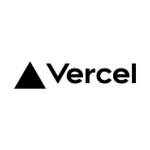
Next.js 10 Sets a New Standard for Frontend Development Platforms
Industry-first capabilities including automatic image optimization, rapid internationalization, quick-start e-commerce and continuous web vitals analytics announced from first annual Next.js Conf to more than 70,000 attendees
SAN FRANCISCO–(BUSINESS WIRE)–NEXT.JS CONF – Vercel, developers of Next.js, the leading React framework, today announced Next.js 10, featuring a number of new industry-first capabilities that accelerate frontend developers’ ability to enrich end users’ web experiences globally. New innovations announced today include automatic image optimization, internationalized routing and automatic language detection, quick-start e-commerce capabilities and continuous Web Vitals analytics.
Vercel’s close collaboration with its customers, in conjunction with partners like Google, Facebook and its community of more than 1,300 open-source contributors have led to the development of Next.js 10, its most powerful release to date. The announcement was made from the first annual Next.js Conf, to more than 70,000 attendees via a custom virtual conference platform developed by Vercel.
“Performance, or lack of it, is the most critical factor in the success or failure of the modern web site,” said Vercel CEO Guillermo Rauch. “Next.js 10 addresses the most critical pain points developers face when optimizing their workflows and websites to deliver high quality, highly-performant content at scale. By enabling a true develop-preview-ship-iterate workflow, Next.js 10 makes it easier than ever for them to achieve excellence in web development and helps assure them that their users will have the highest quality web experiences possible, wherever they may be in the world.”
The first hybrid framework to succeed at scale, Next.js uniquely satisfies the needs of both static and dynamic websites and applications. Next.js’ incremental static generation gives users all the capabilities of a static generator, with the ability to add infinite numbers of pages and update them later without rebuilding the entire site. The ability to leverage React as the fundamental unit of collaboration with the flexibility to scale from one page to one billion pages has led companies including Apple, Twitch, TikTok, Lululemon, Target, Lyft and Hulu to reinvent their frontends with Next.js.
New Innovations in Next.js 10 Include:
- Next.js Analytics — With Google’s Web Vitals poised to become the next PageRank, a web site’s success or failure can depend on developers’ understanding of and ability to optimize for them. Next.js 10 gives developers real-world continuous user insights that help developers understand exactly where to focus to improve site performance. This continuous feedback helps developers understand how the site or application performs for users and improves their Web Vitals scores.
- Automatic Image Optimization — Next.js 10 gives developers a replacement for slow legacy HTML and browser image stacks, which support only one image size and type (often 10X larger than a mobile device can render). With Next.js 10, developers can automatically, seamlessly and transparently replace legacy HTML image tags with a React-based image component that satisfies all of those requirements through automatic progressive loading.
- Internationalized Routing and Automatic Language Detection — Next.js 10 provides internationalized routing and gives teams clear paths for translation, eliminating DIY approaches by supporting language negotiation and memorization out-of-the-box, while automatically determining what content to serve according to users’ language preferences.
- Next.js Commerce — Vercel, in partnership with BigCommerce, has released Next.js Commerce. It is an open source platform that gives all developers the performance, personalization, customization and immersive modern experiences that the largest sites in the world provide their users. It leverages and automates implementation of common e-commerce site components, with a data layer and reusable data primitives provided by BigCommerce.
About Vercel
Vercel is the leading advocate and enabler of frontend developer experience, having created Next.js, the most popular React framework available, and Vercel, the best platform to deploy any frontend website or application. Vercel provides unsurpassed vertical integration, from developer experience to edge delivery, with the industry’s most advanced development tools paired with parallel compute in a serverless cloud environment providing a fully-managed, highly-automated experience for both developers and users. Companies including AirBnb, Hashicorp and TripAdvisor deploy their frontends with the Vercel platform. Venture-backed by Accel and CRV, Vercel (twitter@vercel) is headquartered in San Francisco.
Contacts
Media Contact:
Wilson Craig
SVP/GM
Mindshare PR
wilson@mindsharepr.com
+1 408 516 6182
